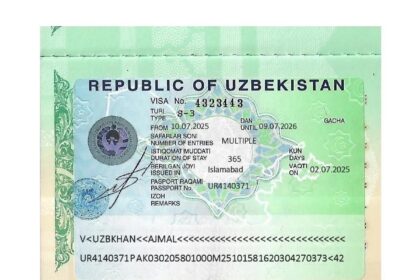The Central Tanzeem Tajiran Pakistan celebrated its sixth foundation anniversary in Islamabad, with President Muhammad Kashif Chaudhry leading the cake-cutting ceremony alongside senior business leaders and officials. Addressing the gathering, Chaudhry stressed the unity and solidarity among the traders across the nation under the organization’s umbrella, reaffirming their commitment to protecting trader rights and interests.
The event saw active participation from notable business personalities, including Zia Ahmad Raja, spokesperson for Central Tanzeem Tajiran Pakistan; Malik Sifat Mehmood, Vice President of Traders Welfare Association I-10 Markaz; Haji Allah Rakha, Chairman of Traders Welfare Association I-10 Markaz; as well as Gul Zareen Abbasi, Iftikhar Butt, Yawar Abbas Paracha, Yasir Abbasi, Shaheer Ali, Muhammad Naseer, Ansar Mehmood, Mohibullah Khan, Shahid Hussain, among others.
In his address, Kashif Chaudhry congratulated business leaders for their continued support and emphasized that traders’ unity and collective resolve ensures protection against unfair and trader-hostile policies. He remarked that traders have consistently fulfilled their responsibilities by paying taxes diligently, and will continue to do so. However, he clearly asserted that traders would fiercely resist any attempts to infringe upon their lawful rights.
Chaudhry underscored the necessity for government institutions, including the Federal Board of Revenue (FBR) and other federal or provincial agencies, to engage traders and other stakeholders in consultations when formulating economic policies. He called upon policymakers to base their decisions on ground realities rather than theoretical constructs, stressing that without practical and realistic policies, improvements in economic conditions would remain elusive.
Furthermore, Chaudhry called for the termination of excessive privileges enjoyed by bureaucrats, elites, and officialdom, stating that it is unfair to continually expect ordinary citizens and traders to bear disproportionate burdens. He urged authorities to abandon practices that unjustly place the weight of economic challenges exclusively on the shoulders of traders and the general public, stressing the need for fairness and shared accountability in economic reforms.











